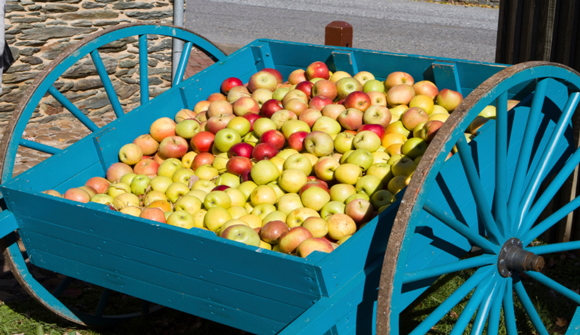

One fairly common concern about the legalization of marijuana use for adults is that it will lead to an increase in rates of abuse of hard drugs, like cocaine, heroin or methamphetamine. This generally stems from the belief that marijuana is a "gateway drug," meaning that use of it leads almost inevitably to the use of harder, destructive drugs and thus, the social toll will be heavy. I'd like to very briefly address that concern in this editorial.
Let's look at where the fear of marijuana originated, first, by reviewing a bit of United States history. "Reefer Madness," a film that premiered in 1936, was quite effective in generating such fear. An excerpt from its foreword makes its propagandistic goals clear:
… frightful toll of the new drug menace which is destroying the youth of America in alarmingly-increasing numbers. Marihuana is that drug – a violent narcotic – an unspeakable scourge – The Real Public Enemy Number One! Its first effect is sudden, violent, uncontrollable laughter; then come dangerous hallucinations … fixed ideas come next, conjuring up monstrous extravagances – followed by emotional disturbances, the total inability to direct thoughts, the loss of all power to resist physical emotions… leading finally to acts of shocking violence… ending often in incurable insanity.
This film followed on the heels of an extensive anti-marijuana campaign conducted in the mass media by the Federal Bureau of Narcotics (formed in 1930) and its first commissioner, Harry Anslinger. Anslinger was extreme in his fearmongering, to put it mildly. Here's just one example of his assessment of this "dread drug":
" … the deadly, dreadful poison that racks and tears not only the body, but the very heart and soul of every human being who once becomes a slave to it in any of its cruel and devastating forms…. Marihuana is a short cut to the insane asylum."
Together, these efforts to boost support for cannabis prohibition generated near-hysterical levels of fear among the public in spite of the fact that cannabis had been routinely used medicinally for everything from toothaches to childbirth pain to colicky infants for centuries before.
Even then, as the prohibition propaganda was being rolled out, the first significant study on marijuana smoking was being conducted by The LaGuardia Committee, finding consistently that Anslinger's claims were incorrect and that "the practice of smoking marihuana does not lead to addiction in the medical sense of the word." Despite such evidence, however, the propaganda took hold with fervor among much of the general public.
It is no wonder that in the years since this national madness took hold fear has made it difficult for many to reconsider what they "know" about cannabis, or take into consideration the tremendous amounts of scientific research that have been done to date.
And while the Internet Reformation, which has massively increased access to volumes of information, has had a great impact on people's level of knowledge about cannabis, a quick search on the words "dangers of marijuana" still turns up 2.75 million results. Compare that to a search on "benefits of marijuana," which now results in 9.64 million results. It's not surprising, is it, that people are still confused? I'd like to help clear up just one aspect of that confusion here.
Now that recreational use of marijuana has been made legal in Colorado and Washington, and medical marijuana is legal in 23 states plus the District of Colombia, what does the evidence say about marijuana's role as a gateway drug? What about findings from the Netherlands, which decriminalized all drugs in 2001 or Portugal, which followed suit in 2002?
Medical marijuana has now been legal or decriminalized in enough jurisdictions for a significant amount of time that data have been studied and conclusions reached.
Research has found that legalization of medical marijuana has not increased drug addiction rates or generated increased social problems in the numerous countries and the 23 US states and the nation's capitol that have legalized it to date. In fact, studies are now showing that just the opposite is true.
The Journal of the American Medical Association-Internal Medicine published a study in August that found "deaths associated with the use of opiate drugs fell in 13 states after they legalized medical marijuana. Compared to states with no formal access to marijuana, those that allowed certain patients legal access to cannabis saw a steady drop in opiate-related overdoses that reached 33%, on average, six years after the states' medical marijuana laws took effect." A 33 percent decrease in overdoses in six years! The research author stated, "If true, this finding upsets the apple cart of conventional wisdom regarding the public health implications of marijuana legalizations and medicinal usefulness."1
Portugal, which decriminalized all drugs in 2002, found after more than a decade that the number of drug addicts and "problematic" abusers has been cut in half. The country began to spend money previously used to arrest and incarcerate users on treatment and education programs, which contributed to this decrease in addiction.2 The results even included decreased drug usage among teens aged 13-18 years. "In almost every category of drug, and for drug usage overall, the lifetime prevalence rates in the pre-decriminalization era of the 1990s were higher than the post-decriminalization rates. Moreover, the level of drug trafficking, as measured by the numbers of those convicted of that offense, has steadily declined since 2001 as well."3
The Netherlands, which decriminalized all drugs in 2001, allows cannabis to be sold and consumed openly by citizens. The previous costs of law enforcement of anti-drug use laws have been used instead for treatment, prevention and harm reduction from drug use. "Dutch policymakers realized that buying illicit marijuana put users in contact with dealers who also sold harder drugs. As designated commercial sources for marijuana evolved, drug users became much less likely to buy harder drugs from their cannabis sources. For example, in Sweden, 52 percent of marijuana users report that other drugs are available from their usual cannabis source. In the Netherlands, only 14 percent of marijuana users can get other drugs from their cannabis source, according to European drug monitors. … The Netherlands now enjoys the lowest rate of problem drug use in Europe."4
In addition, by providing citizens with a legal source for marijuana purchase, the Dutch government separated the point of purchase between "soft" and "hard" drugs, leading to lower usage rates of cocaine and heroin. "It seems prohibition, which lumps substances together and necessitates one buy from the black market, may be the gateway culprit rather than cannabis. Scientists from the American Journal of Psychiatry, British Journal of Addiction, and the Institute of Medicine, to name a few, echo these phenomena with scientific studies finding no causal link between cannabis and harder drugs."5
There is certainly evidence that people can and do become psychologically dependent upon cannabis. That's not surprising, is it? People become dependent on all kinds of substances and activities. Look at the self-help groups for people "addicted" to nearly everything imaginable: shopping, sex, gambling, caffeine, eating, sugar – apparently, we humans can become dependent upon nearly anything and quite often need a lot of help to stop even life-damaging behaviors. Given the evidence that cannabis is not a gateway drug that leads to increased social problems, it is time for each of us to reassess what we actually know about it and, if warranted, reconsider our stance on its legal status.
Ultimately, we must each accept responsibility for our own behavior. Asking the State to stop us from doing anything that causes harm in our lives is irresponsible and immature; facing consequences of our own poor decisions is simply a part of life. Every adult is fully capable of making such choices, which include the decision to use or not use marijuana, recreationally or medicinally, and ultimately, legalization of marijuana will prove that, indeed, we are each perfectly capable of making good decisions.
NOTES:
1http://touch.latimes.com/#section/-1/article/p2p-81180518/
2 http://www.forbes.com/sites/erikkain/2011/07/05/ten-years-after-decriminalization-drug-abuse-down-by-half-in-portugal/
3 http://object.cato.org/sites/cato.org/files/pubs/pdf/greenwald_whitepaper.pdf
4 http://www.opensocietyfoundations.org/voices/safe-and-effective-drug-policy-look-dutch
5 http://www.drugpolicy.org/blog/america-take-note-three-lessons-holland-learned-after-decades-evolving-its-drug-policy
John Knapp is a pioneer in the legal cannabis industry and has consulted in five states, Canada and South America on industry matters. He is a sought-after speaker and has been interviewed by or featured in numerous newspapers and cannabis publications. John is the founder of Colorado-based Good Meds Network and Illinois-based Third Wave Enterprises, both medical-grade cannabis businesses, as well as of Gro|Quip, a gardening equipment distributor, and is Senior Marijuana Design Engineer for Quantum 9 Consulting.
